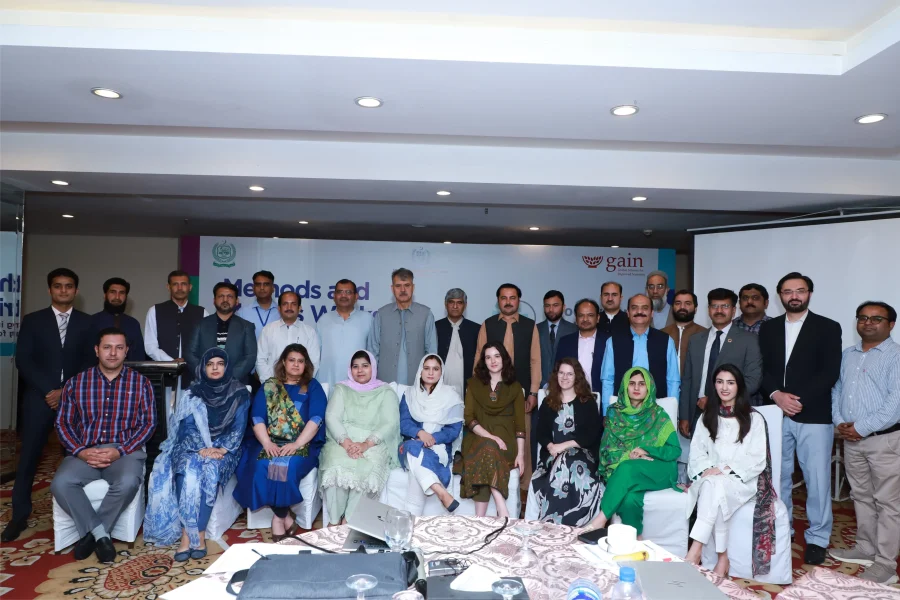The National Stakeholder Workshop on the pivotal role of healthier, more sustainable and equitable food systems in realizing each SDG successfully concluded here Tuesday with robust discussions and collaborative efforts aimed at advancing food system transformation in Pakistan.
The moot addressed the method and metric gaps in measuring food system transformation in Pakistan and called it vital for coping with the advanced nations in this particular sector.
Co-hosted by the Pakistan Agriculture Research Council (PARC) and the Global Alliance for Improved Nutrition (GAIN) Pakistan office, the event drew experts from the public and private sectors.
They held that since 2021, the imperative of transforming food systems to achieve the Sustainable Development Goals (SDGs) by 2030 has been underscored by the United Nations Food System Summit (UNFSS-2021) and the subsequent UNFSS +2 Stock Taking Moment in 2023.
They recognized the pivotal role of healthier, more sustainable and equitable food systems in realizing each SDG and called for addressing the critical gaps in measuring food system transformation.
Member SSD at PARC, DrGhulamSadiqAfridi emphasized the importance of collaborative endeavors in his welcoming remarks during the inaugural session.
FaizRasool, Head of Policy and Advocacy at GAIN, Pakistan, provided valuable insights into the current food security situation and significance of policy implication and the adaptation of innovative data tools through stakeholder engagement in driving positive change within food systems.
The workshop focused on key objectives, including the review of existing indicators and measures related to UNFSS pathways and national nutrition goals in Pakistan, identification of new indicators in underrepresented areas of the food system, and prioritization of new indicators to be developed as part of the Nourishing Food Pathways (NFP) program by GAIN.
Technical sessions, facilitated by Dr. Elizabeth Graham, Research Advisor – Nourishing Food Pathways Programme at GAIN, and other experts, enabled participants to engage in fruitful discussions, review existing indicators, and identify priority areas for new indicator development.
The outcomes of the workshop includes a comprehensive list of new indicators required for measuring food system transformation in Pakistan, particularly in underrepresented themes.
Country-led prioritization of missing indicators, reflecting the priorities of stakeholders across Pakistan working on food system issues.
Increased awareness and utilization of established data sources supported by PARC & GAIN in Pakistan, including the Pakistan Food System Dashboard (PFSD) and the supporting Food System Countdown Initiative.
The commitment to developing, piloting, and validating indicators as part of the Nourishing Food Pathways activities in Pakistan by 2027, intended for use in databases such as the PFSD and other relevant surveys.
The workshop’s findings would significantly contribute to Pakistan’s National Food System Dashboard, enhancing the country’s capacity to measure and monitor food system transformation accurately.










